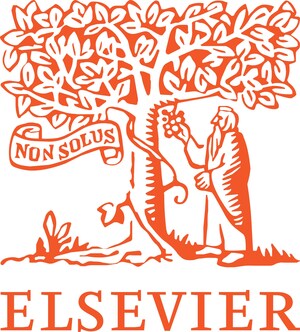
U.S. National Science Foundation (NSF) Selects Elsevier Data to Support its Science and Engineering Indicators
WASHINGTON D.C., April 29, 2015 /PRNewswire/ --
Elsevier, a world-leading provider of scientific, technical and medical information products and services, today announced that the National Science Foundation (NSF) has selected Scopus bibliometric data, and LexisNexis patent data as primary source to support its biennial Science and Engineering Indicators (SEI) report. The NSF's National Center for Science and Engineering Statistics (NCSES) will use Elsevier's data in support of the next SEI report which will be released in 2016.
The NSF's NCSES completed a competitive evaluation under an open bid process and chose Elsevier as the primary data provider for their 2016 report; Elsevier is providing the Scopus bibliometric database and LexisNexis patent data for Science and Engineering Indicators and other analytical uses.
Nick Fowler, Elsevier's Managing Director Research Management, said, "This agreement is further testament to the quality and depth of Elsevier's data and metrics. We are confident our data will be a useful and objective input to the SEI report and U.S. science more broadly. We are pleased to play a role in helping governments, funding bodies and universities around the globe to understand research performance."
The SEI report provides a broad base of quantitative information about U.S. science, engineering, and technology. It is widely acknowledged to be the definitive source of information on macro trends in U.S. research funding, output, and performance. American universities and colleges use data from the SEI report for their strategic planning and performance benchmarking of national and institutional comparators. Although the SEI report is policy neutral and does not make policy recommendations, many policymakers rely on the report to support discussions on science and research funding.
About Scopus
Scopus is the largest abstract and citation database of peer-reviewed literature and features tools to track, analyze and visualize scholarly research. Its comprehensive database contains 55+ million items indexed from 21,000 titles from more than 5,000 publishers worldwide, ensuring broad interdisciplinary coverage in the fields of science, technology, medicine, social sciences and arts and humanities. Scopus was designed and developed with input from researchers and librarians and features direct links to subscribed full-text articles, other library resources and interoperability with applications such as reference management software. Scopus is part of the Elsevier Research Intelligence portfolio which includes the SciVal tools, the Pure system, rich data assets and custom Analytical Services.
About LexisNexis
LexisNexis® is a leading global provider of content-enabled workflow solutions designed specifically for professionals in the legal, risk management, corporate, government, law enforcement, accounting, and academic markets. LexisNexis originally pioneered online information with its Lexis® and Nexis® services. LexisNexis is part of RELX Group and serves customers in more than 100 countries with more than 15,000 employees worldwide. http://www.lexisnexis.com
About Elsevier
Elsevier is a world-leading provider of information solutions that enhance the performance of science, health, and technology professionals, empowering them to make better decisions, deliver better care, and sometimes make groundbreaking discoveries that advance the boundaries of knowledge and human progress. Elsevier provides web-based, digital solutions - among them ScienceDirect, Scopus, Elsevier Research Intelligence and ClinicalKey - and publishes over 2,500 journals, including The Lancet and Cell, and more than 33,000 book titles, including a number of iconic reference works. Elsevier is part of RELX Group plc, a world-leading provider of information solutions for professional customers across industries. http://www.elsevier.com
Media contact
Iris Kisjes
Senior Corporate Relations Manager, Elsevier
+31-20-485-3072
[email protected]
SOURCE Elsevier





Share this article